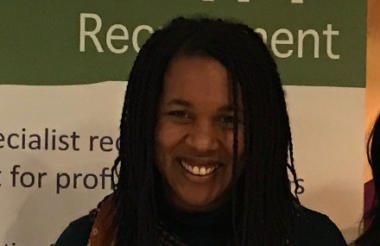Charities need to have more “collective courage” and help to amplify each others’ voices, Ruth Ibegbuna said at NCVO’s Campaigning Conference yesterday.
Ibegbuna, who founded the youth charity Reclaim and is currently setting up a new project to connect different types of community leaders around the country, told the audience that the charities need to help each other more.
She said it was frustrating that larger youth charities would often ask smaller charities to support their campaigns by sharing them on social media, but did not return the favour.
“We need to be amplifying each others voices,” she said.
Ibegbuna said she believed it was “possible” to create more change.
“But we are a long way off if we don’t quickly as a sector unify and find some collective courage,” she said.
She said there was “too much of organisations leading for themselves and not the sector”.
‘If you’re not angry you’re in the wrong sector’
She said the sector should have more personality.
“We need to be developing a stronger personality as a sector,” she said.
She said that sometimes others are “allowed to define how angry we should be”.
But that “I am angry because things are not great”.
She added that: “If you are not angry and you run a charity then you are probably in the wrong sector.”
She said some charity Twitter accounts were “too carefully worded” which made them dull and that people should be doing more to demonstrate “passion”.
She also said the charity sector should look at how it presents itself.
For example she said that she had always insisted that “none of our adverts look like charity adverts” because “part of the reason our sector gets looked down on is because it doesn’t look professional enough”.
Putting service users front and centre
Ibegbuna said that she had made significant changes to what Reclaim did after young people said that they did not feel it was working for them.
Young people said that they did not want to be referred to as “disadvantaged” but instead use “working class”.
She said that they that wanted to start creating and running their own social justice campaigns, which were often considered “disruptive” and challenged people in authority, but have been successful.
She said that this created some tension with trustees and with funders who stopped supporting the charity, but that it was the right thing to do.
Earlier in the day, Labour MP and shadow disability minister, Marsha de Cordova, said that as an MP it was campaigns featuring people with “real life experience” that most attracted her attention, so these voices should be “central” to good charity campaigns.










